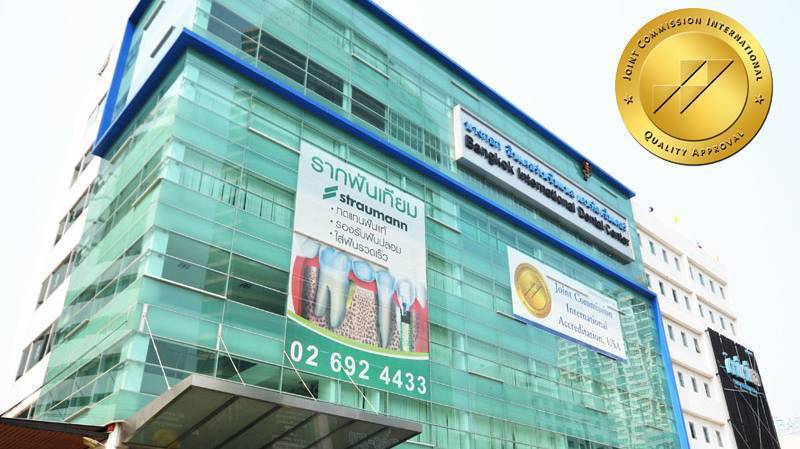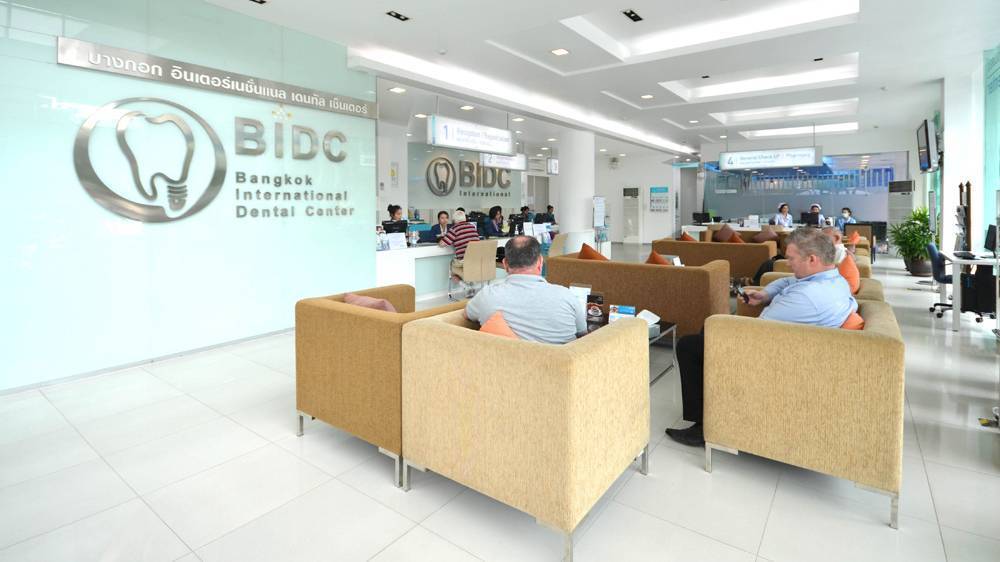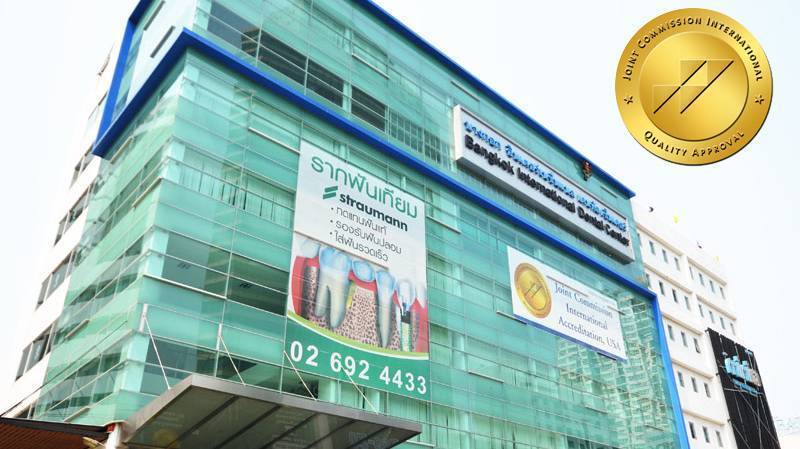It Is Suitable For
· Those in Bangkok looking to replace missing teeth.
· Those who want to restore jawbone lost due to tooth extraction or trauma.
· Those who want to prepare their jaw for dental implants.
· Those who wish to rebuild bone damaged by gum disease or infection.
· Those who wish to improve the stability and longevity of future dental restorations.
What Is Bone Grafting For Dental Implant?
Bone Grafting For Dental Implant is a surgical procedure that adds bone material to areas of the jaw with insufficient bone volume. This procedure strengthens and restores the jaw, providing a stable foundation for dental implants. Bone grafts can use natural bone from the patient, donated human bone, animal-derived bone, or laboratory-made substitutes. The graft material acts as a scaffold, allowing natural bone to grow and regenerate over time. Benefits include improved implant success rates, restored jawbone structure, and enhanced oral function. Bone grafting can also fill empty tooth sockets, support loose teeth, or lift sinus areas for implant placement.
How It Works
During Bone Grafting For Dental Implant, the area is numbed with local anesthesia (or sedation if necessary). An incision is made in the gums, and the jawbone is exposed and cleaned. Bone graft material is then placed in the deficient area, sometimes combined with a protective membrane or platelet-rich plasma (PRP) to enhance healing. The gums are repositioned and sutures closed. Over the following months, the graft material is gradually replaced by natural bone, creating a strong foundation for future dental implants. Healing times vary from a few months for small grafts to 9 to 12 months for larger grafts.
Bone Grafting For Dental Implant Procedure
1. Consultation and oral examination will be conducted.
2. Local anesthesia will be administered.
3. Gum tissue will be carefully opened at the graft site.
4. Jawbone will be cleaned and prepared.
5. Bone graft material will be placed into areas of bone loss.
6. Protective membrane or PRP may be applied.
7. Gums will be repositioned and sutured.
8. Post-care instructions will be provided.
Advantages and Limitations of Bone Grafting For Dental Implant
<Advantages>
· Enhances jawbone volume and density
· Offers a strong foundation for dental implants
· Provides long-term stability
· Improves facial structure and oral function
· Reduces risk of implant failure
<Limitations>
· Not suitable for patients with uncontrolled medical conditions or heavy smokers
· Healing can take several months
Bone Grafting For Dental Implant Preparation
· Avoid smoking or vaping for at least 48 hours before the surgery
Bone Grafting For Dental Implant Post Care
· Avoid rinsing, spitting, or touching the surgical site for the first 24 hours before surgery
· Refrain from strenuous exercise for at least 48 hours after surgery
· Maintain gentle oral hygiene; rinse with saline solution after the first 24 hours
· Avoid smoking or vaping for at least 48 hours during the healing period
FAQ
Q1: How painful is Bone Grafting For Dental Implant?
A1: The procedure is generally not painful with application of local anesthesia or sedation; hence, discomfort during surgery is minimal. Mild soreness, swelling, or tenderness may occur afterward and can be managed with prescribed medication.
Q2: How long does Bone Grafting For Dental Implant last?
A2: A successful Bone Grafting For Dental Implant can last a lifetime. Once the graft fully integrates with the natural bone, it becomes a permanent part of the jaw, providing long-term support for dental implants or other restorations.
Q3: How long will I feel sore after Bone Grafting For Dental Implant?
A3: Soreness usually lasts a few days to one week, depending on the size of the graft and individual healing. Swelling and mild discomfort are normal and typically subside within the first week.
Q4: How long after Bone Grafting For Dental Implant can I eat normally?
A4: A soft food diet is usually recommended for the first 1 to 2 weeks. Normal eating can gradually resume once the surgical area feels comfortable and healing is stable.
Q5: How long do I need to stay in hospital after Bone Grafting For Dental Implant?
A5: Hospitalization is not required. Bone Grafting For Dental Implant is typically an outpatient procedure, meaning the patient can return home the same day after surgery.
Clinic Information
[Clinic Name] Bangkok International Dental Center (BIDC)
[Location] Bangkok, Thailand
[Nearest Station/ Nearest Tourist Destination] Near MRTA Thailand Cultural Center
[Clinic Opening Time] Monday to Saturday (9:00AM – 8:00PM)
Terms of Service
Trambellir is a health tourism platform and does not in any way provide, promote, or sell any
medication or medical treatment to the Customers.
Customers are advised to contact the healthcare providers directly for any enquiries related to
medical treatments.




